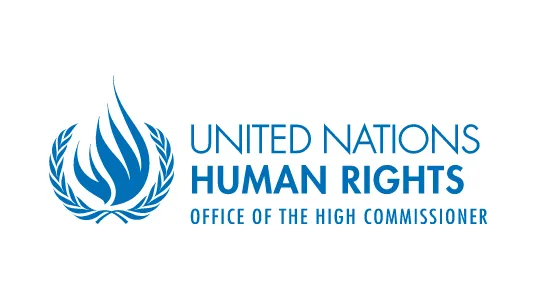Military coup has exacerbated already severe climate risks in Myanmar: UN experts

GENEVA (27 November 2023) – UN experts* warned today that the military coup in Myanmar had not only caused a human rights and humanitarian crisis, it was also increasing the climate vulnerability of the people of Myanmar.
“It is imperative that world leaders help end the crisis in Myanmar by supporting communities to mitigate climate impacts,” the experts said at the outset of the 28th Conference of the Parties to the UN Framework Convention on Climate Change (COP28) in the United Arab Emirates.
“Increasingly isolated from the global economy and strapped for cash, the military junta has accelerated the exploitation of Myanmar’s natural resources, including timber, jade, and rare earth minerals, to fund its human rights abuses. Growing resource extraction, often unregulated and facilitated by the military or other armed groups, is degrading the environment, polluting water sources, ravaging forests, and exacerbating climate change risks,” the experts said.
“The effects of intersecting conflict and climate issues are already threatening the health, livelihoods, and security of millions in Myanmar, particularly Indigenous peoples, whose lives are interdependent with nature and who have served as custodians of the environment for centuries,” they said.
Myanmar, home to a wealth of natural resources and biologically diverse ecosystems, was already one of the most vulnerable countries to climate change when the junta staged an illegal coup and plunged the country into violent conflict in February 2021.
“For more than two years the junta has held the people of Myanmar hostage, launching indiscriminate attacks that have displaced communities on a massive scale and reduced local capacity to respond and adapt to climate change. Many environmental activists have fled into exile or shifted their focus to crisis response. Communities are living day to day, which impedes their ability to adopt climate resilient practices. Progress made towards climate change resilience in the years prior to the coup has stalled or been reversed,” the experts said.
They urged the international community to support local communities and organizations through flexible funding for localized climate mitigation and adaptation programs and avoid official engagements with the military junta, which lacks the capacity or will to implement effective environmental policies and will use all official interactions for propaganda purposes.
“Some of Myanmar’s pro-democracy and opposition institutions are actively developing climate and natural resource policies, and many courageous environmental groups continue to defend Myanmar’s forests, wildlife, and biodiversity. We must support such efforts,” the experts said.
“Myanmar is severely ill-prepared to deal with the fast-approaching effects of climate change. The devastating impact of Cyclone Mocha, which made landfall in northwestern Myanmar in May 2023, followed by the junta’s shameless obstruction of aid delivery to cyclone-impacted communities, were dark reminders of the consequences of the world’s failure to address both climate change and the Myanmar military’s oppression and human rights violations,” the experts said.
“More climate disasters are coming to Myanmar and they will likely be worse. World leaders cannot simply wait for the next storm to arrive and lament the deaths and destruction afterwards. Urgent, decisive action to support the most vulnerable is needed now,” they said.
ENDS
*The experts: Mr. Thomas Andrews, Special Rapporteur on the situation of human rights in Myanmar; Mr. David Boyd, Special Rapporteur on the issue of human rights obligations relating to the enjoyment of a safe, clean, healthy and sustainable environment
The Special Rapporteurs, Independent Experts and Working Groups are part of what is known as the Special Proceduresof the Human Rights Council. Special Procedures, the largest body of independent experts in the UN Human Rights system, is the general name of the Council’s independent fact-finding and monitoring mechanisms that address either specific country situations or thematic issues in all parts of the world. Special Procedures’ experts work on a voluntary basis; they are not UN staff and do not receive a salary for their work. They are independent from any government or organization and serve in their individual capacity.
For more information and media requests, please contact Jacqui Zalcberg ([email protected])
For media enquiries regarding other UN independent experts, please contact Maya Derouaz ([email protected]) or Dharisha Indraguptha ([email protected])
Announcements
21 May 2025
Open letter: Malaysia must lead ASEAN with principle, not hypocrisy, to address the Myanmar crisis

Progressive Voice is a participatory rights-based policy research and advocacy organization rooted in civil society, that maintains strong networks and relationships with grassroots organizations and community-based organizations throughout Myanmar. It acts as a bridge to the international community and international policymakers by amplifying voices from the ground, and advocating for a rights-based policy narrative.